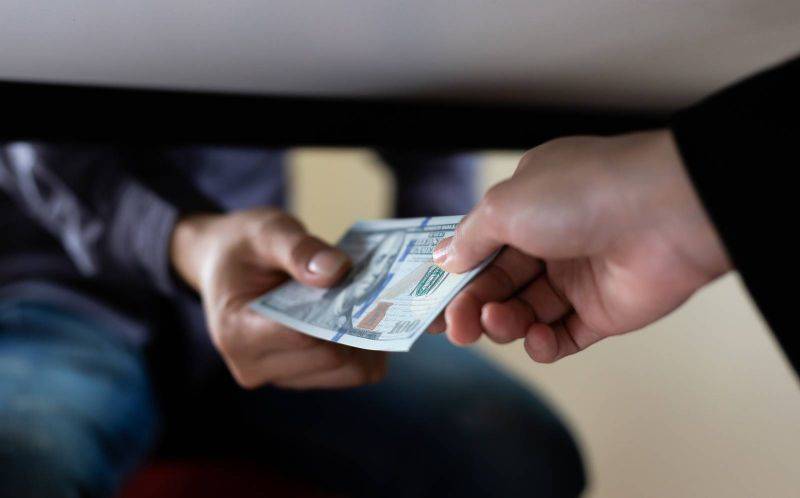
(Credit: 89Stocker/Bigstock)
In the good old days, during the era of the illusion of prosperity, the political class ruled the Lebanese masses through the application of certain levers of power, namely the distribution of undeserved and unearned entitlements. For the poor and middle class, this took the form of dishing out useless, meaningless jobs in government — jobs that shouldn’t even exist.
For example, a guy I know works for the infamous railway company. He was hired a few years back, even though trains stopped running more than 30 years ago. He has since died, yet he’s still getting paid. By giving him this job, his tribal leader owns his and his family’s loyalty, all bought using Lebanese taxpayer funds, which don’t belong to the za3im anyway. The za3im divvies up OPM (Other People’s Money) to earn unwavering loyalty and support.
A corollary of this modus operandi is to help a guy like that obtain a delayed government document, like a building permit, held up awaiting a bribe, by greasing the wheels of government to get it through.
For people in the higher classes, the political elite use kickbacks. Say, there’s a contract for $25 million that needs to be assigned to build a bridge or some other project. The contract is assigned to one of their lackeys, unfairly, in a nontransparent fashion. It’s billed at $50 million, and the excess $25 million is split between the lackey and his political sponsor.
Today, the country is effectively bankrupt, so the old ways no longer work — or, at least, only to a fraction of the degree they used to — not because the users of these ways “found Jesus” but because there simply are no more funds to waste in this manner.
So what are the new levers of power?
The obvious recent way is to divvy up vaccines — you might have noticed that these are being shipped in by political parties or rich politicians, and usually distributed to party members or potential recruits.
The more sophisticated way is happening in the banks. Say you have $100,000, in lollars, stuck in one of the Lebanese banks. At best, you can withdraw a small portion, say $1,000 per month in Lebanese lira, at a conversion rate of LL3,900, thereby losing two-thirds of the value once you convert to real dollars or, as the banking boys call these, “fresh dollars,” thereby making us the only country in the world to refer to Benjamin Franklins with an adjective better suited to describing a vegetable.
If one of the sectarian chieftains were to call a bank manager and “politely” ask him to allow you to withdraw some of that money, say $5,000, in cash or transfer it overseas, you’d owe this guy big time. Remember, without a capital controls law, the sign-off for such a transaction is right there in the bank, at the branch manager level or, in the worst case, at the CEO or chairman level. Imagine a senior banker receiving such calls from political leaders pressuring him to allow withdrawals: would he really risk rejecting them, posing as some type of fearless, courageous paragon of virtue? The only limit to his doing this is logistics, namely having real dollars with his custodial banks in New York; otherwise, this would create a minor inconvenience for the za3im, forcing him to make another call to the central bank (pulling two strings instead of one) to provide the funds.
These types of transactions are what I refer to as super wasta.
Mind you, unlike conventional wisdom, the size of the account isn’t the main factor here. It is the importance of the account holder to the za3im, either because he is one of his close people, say his head of security or an MP, whose vote he can now co-opt, or because he needs him for something, or even because the person’s pleading their case got to the charitable side of him. I wouldn’t put it past these guys to actually convince themselves that they were being benevolent in this last case, sort of like a donation in the church basket after confession to absolve ourselves of our sins.
So, if you’re wondering why a capital controls law hasn’t passed in over a year after it was applied illegally and capriciously, it’s because this gave the time and opportunity for connected people to get the hell out of dodge.
Of course, it also helps that the Lebanese masses accepted this travesty, making Lebanon the only country in the world to prevent people from accessing their money with no law whatsoever. After all, isn’t always being nice, compliant and accepting of whatever comes your way the true meaning of Lebanese resilience?
Dan Azzi’s column appears monthly in L’Orient Today.